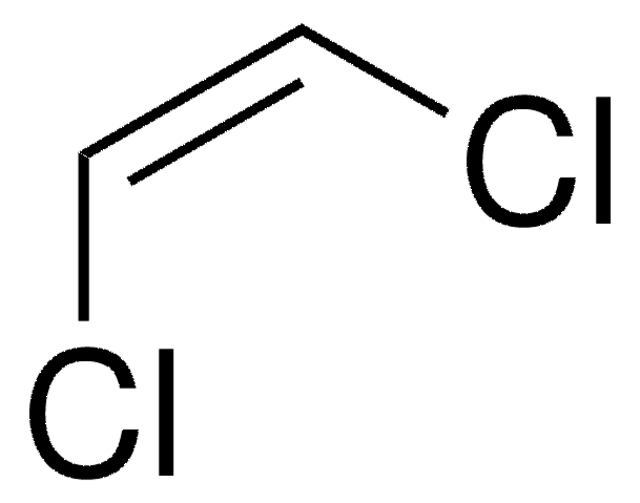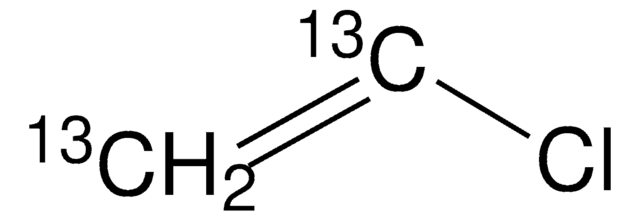48625
Vinyl chloride solution
200 μg/mL in methanol, analytical standard
About This Item
Recommended Products
grade
analytical standard
Quality Level
Agency
ISO 17943
CofA
current certificate can be downloaded
packaging
ampule of 1 mL
concentration
200 μg/mL in methanol
technique(s)
HPLC: suitable
gas chromatography (GC): suitable
application(s)
cleaning products
cosmetics
environmental
food and beverages
personal care
petroleum
format
single component solution
storage temp.
2-8°C
InChI
1S/C2H3Cl/c1-2-3/h2H,1H2
InChI key
BZHJMEDXRYGGRV-UHFFFAOYSA-N
Looking for similar products? Visit Product Comparison Guide
General description
Other Notes
Signal Word
Danger
Hazard Statements
Precautionary Statements
Hazard Classifications
Acute Tox. 3 Dermal - Acute Tox. 3 Inhalation - Acute Tox. 3 Oral - Flam. Liq. 2 - STOT SE 1
Target Organs
Eyes,Central nervous system
Storage Class Code
3 - Flammable liquids
WGK
WGK 2
Flash Point(F)
51.8 °F - closed cup
Flash Point(C)
11 °C - closed cup
Choose from one of the most recent versions:
Already Own This Product?
Find documentation for the products that you have recently purchased in the Document Library.
Customers Also Viewed
Protocols
High performance, reliability, and reproducibility of HS-SPME in combination with GC/MS for the determination of VOCs in water was proven in an interlaboratory trial. The new ISO 17943 using HS-SPME is an improvement on existing official methods for this determination in terms of sensitivity and selectivity.
US EPA Method TO-17: GC Analysis of Volatiles on VOCOL® after Collection/Desorption using Air Toxics Tube
US EPA Method 8260 describes the analysis of volatile organic compounds in solid wastes and ground waters. This application illustrates the analysis of many compounds commonly analyzed by this method using purge and trap coupled to GC-MS.
Our team of scientists has experience in all areas of research including Life Science, Material Science, Chemical Synthesis, Chromatography, Analytical and many others.
Contact Technical Service








